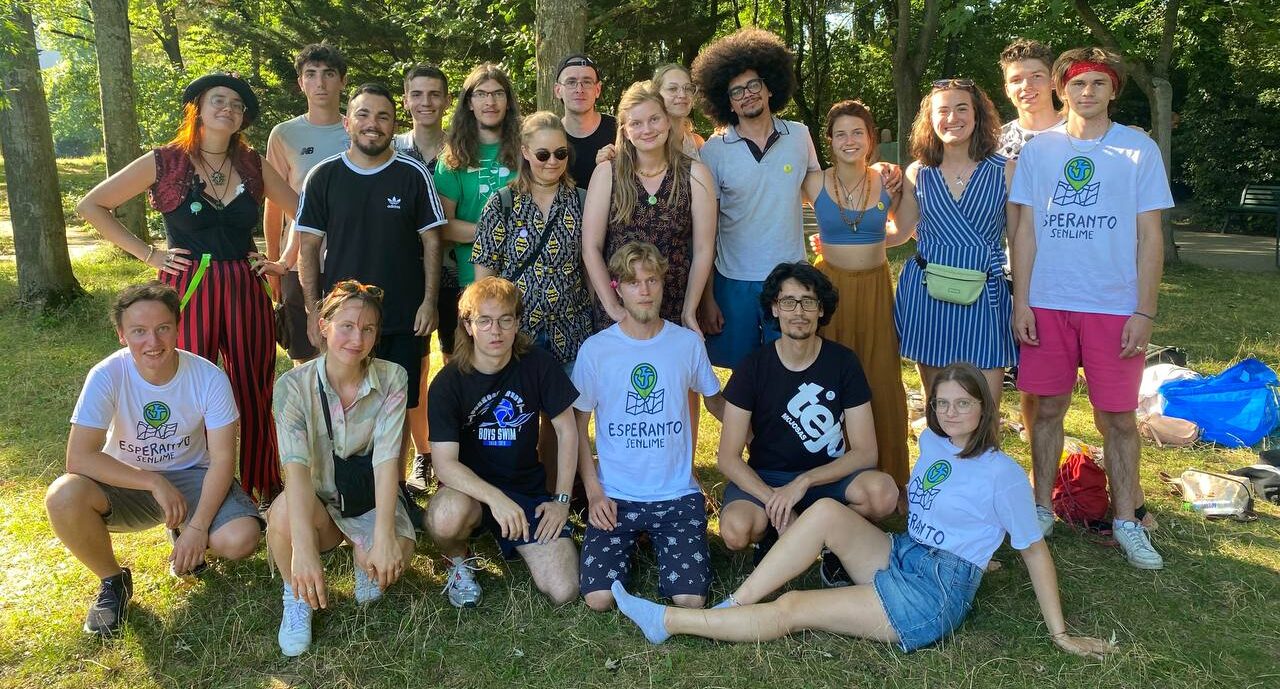In the months since I returned from NASK and the Usona Landa Kongreso, I have had to deal with multiple issues, many of them involving looking after my octogenarian mother. That means doing the grocery shopping, the laundry, occasional dish-washing by hand, and so on. It's put a drag on my Esperanto studies, one I'm determined to overcome. (Just not at the expense of sleep.)
In the meantime...
If I had known better, I would swear that TEJO — short for Tutmonda Esperantista Junulara Organizo — was building a 'content house' alongside their global hub for young Esperantists all over the world. A look at their YouTube channel shows what they've willed into being, including three musicals you can stream right now: June kaj kune (also the organization's slogan, meaning 'young and together'), Petveturaj aventuroj, and most recently, La sorto gvidos vin ('Fate will guide you'). There are also concerts featuring such groups as La Perdita Generacio ('Ĉiuj ni amegas Usonon' anyone?) and Dudekses, and an endless library of topical videos as well.
And if Libera Folio is to be believed, TEJO is now entering the reality TV realm as well. In a way... (translated from the article linked above:)
In the first season of «Esperanto senlime» [Esperanto without limits], the first episode of which can be watched on May 18, [seventeen] participants travel from Rotterdam to Barcelona. [....] The participants travel by train with an Interrail card, but also hitchhike. The trip lasted ten days, and with the help of locals, tasks and challenges were prepared for the participants in six cities in four different countries.
The Libera Folio staff makes a comparison to the popular U.S.-mad series The Amazing Race, but I'm personally also reminded of such South Korean variety shows as the KBS series Two Days and One Night. One of the comments left in response to this announcement suggested that we are in for an upgrade of the educational show Pasporto al la tuta mondo (although I would take such a thought with the proverbial grain of salt).
How the new show will actually compare is something we will have to wait for until Saturday 18 May, when the first episode drops.
As the cliché goes, stay tuned.
Image ©2023 Tutmonda Esperantista Junulara Organizo.

























